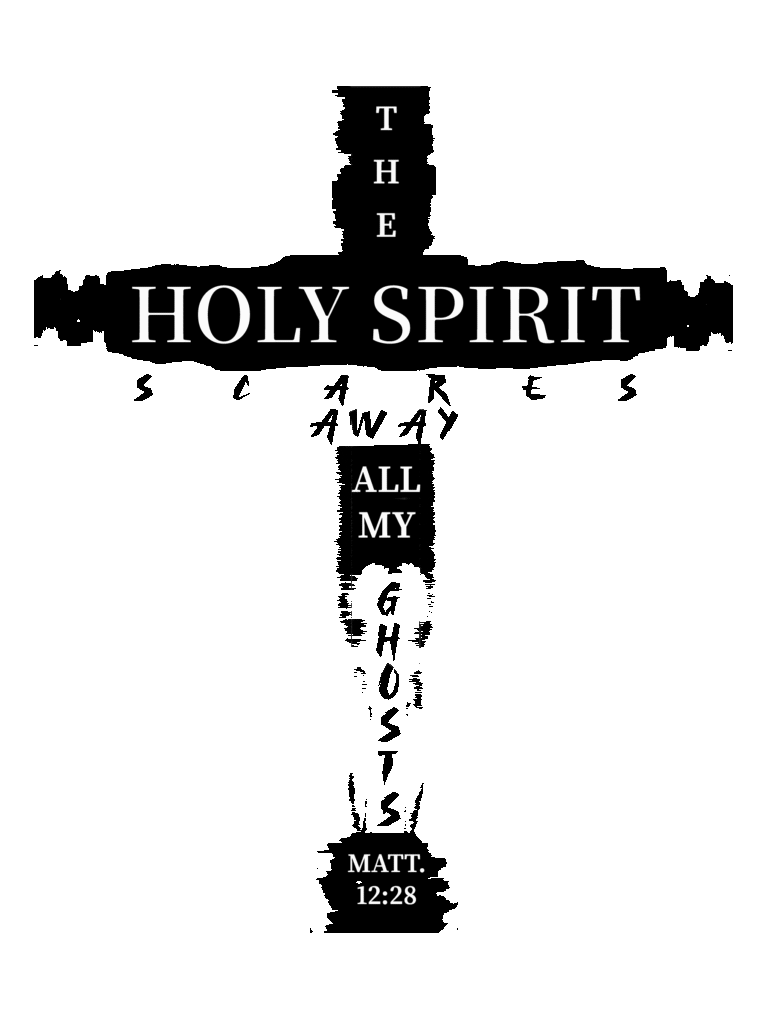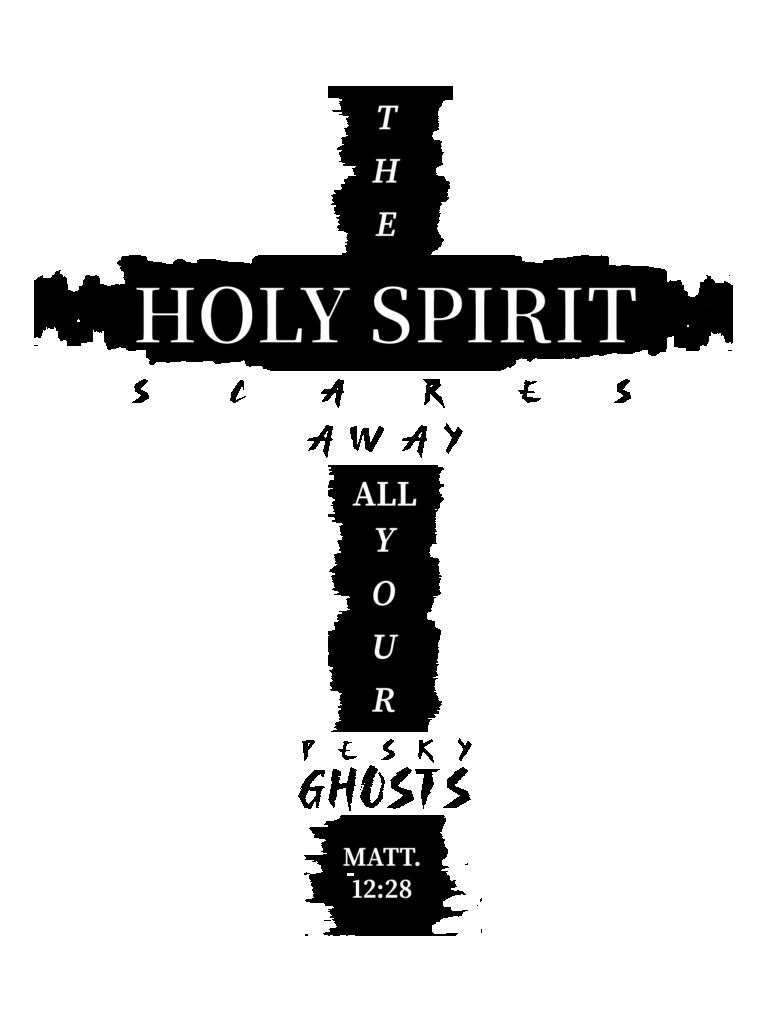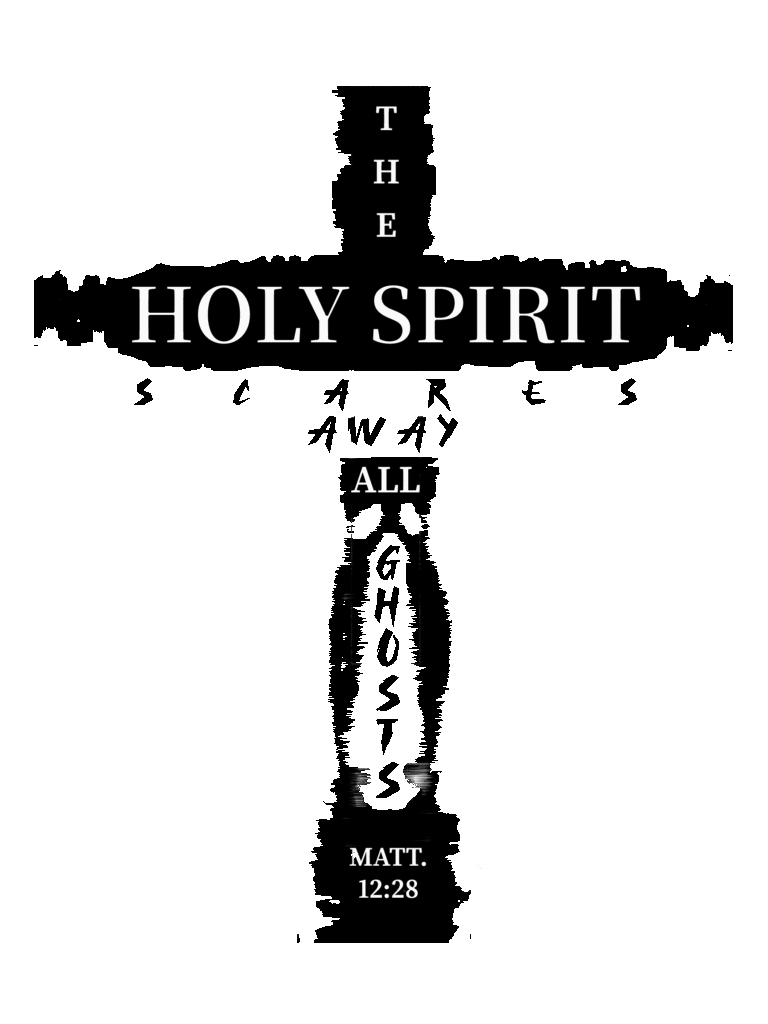When I was young, I thought the Holy Ghost was something people craved to be possessed by on Sunday’s. So much so, that individuals looked forward to absolutely loosing their minds during Sunday church service. Getting “possessed” every Sunday—I thought—was a religion itself for many.
Growing up on the cutting edge of Gen X in the 80’s, I watched a lot of horror movies — a lot them. Yet some of them wasn’t as scarier as seeing adults running around, screaming, and welling at church. As I matured —somewhat—in later years, I came to an epiphany: the Holy Ghost is also called the Holy Spirit, and He is not meant to be feared.

Design by FreePix Edit by Rock Images
Is The Holy Spirit a Ghost, or Is The Holy Ghost a Spirit?
On more than one occasion, I’ve heard people—even Ministers and Pastors—use the words “Holy Ghost” interchangably. Yet everytime I hear “Holy Ghost,” I get reminded of the scripture: John 4:24 – God is a Spirit: and they that worship him must worship him in spirit and in truth.
This interchangable usage isn’t neccessarily a bad thing. Some Christian denominations prefer saying Holy Ghost more than others. Taking a closer look, this difference mainly comes from how the Holy Bible has been translated over time, into multiple languages with varied interpretations. Although, many words are lost in translation, the Holy Bible still holds true to its core meaning principles.

Design by FreePix Edit by Rock Images
What’s the Difference Between Ghosts and Spirits(Spiritual Beings)?
Ghosts in Modern Day Context
In most cultures today, the colloquial usage of the word “ghost“, refers to the soul of a dead person wandering the earth, aiming to haunt the living. Biblically, ghosts are mostly taught to be lower-level demonic entities perpetrating as former living people, to provoke fear and emotional distractions.
However, the word “ghosts” can server as metaphors—our past mistakes, toxic relationships or past situations that continue to haunt us emotionally and spiritually.
What are Spirits?
The term spirit can get complex depending on how it is used.
In Matt 14:22-26, Jesus walked on the Sea of Galilee during a storm, His disciples were riding in a boat in the mist of that same storm. They thought it was a spirit and they became afraid. The King James Version uses the term spirit. In some later translated versions “spirit” is rendered as ghost. This interesting because ghost evokes fear, while spirit has a broader, more neutral meaning.
Spirits are also known as spiritual beings. Spiritual beings are Incorporeal—meaning they don’t have a physical form—yet they have the ability to operate in and manipulate the physical world in different ways. Spiritual beings, as described in scripture, include angelic beings, wicked spirits, the human spirit, and the father of spirits – God Himself. The Spirit of God is also expressed as the Lord God, the Spirit of the Lord and the Holy Spirit. I know this can sound exhausting, but stay with me.
Angelic beings are powerful messengers and protectors that server under the Spirit of God.
Wicked or unclean spirits, often referred to as fallen angels or higher-level demons, are those who rebelled alongside a rogue angelic being named Lucifer—the “day star,” translated from latin (Isaiah 14:12 NKJV).
And then there’s us—human beings. Though we have a physical body and a soul (our personality/mind), we also have a human spirit the devine breath or power of life from God: “Then the Lord God formed a man[a] from the dust of the ground and breathed into his nostrils the breath of life, and the man became a living being.” (Genesis 2:7 NKJV).
This is also biblicaly document when Moses pettioned God to appoint a leader after him so the Israelites wouldn’t wander aimlessly, he said: “Let the LORD, the God of the spirits of all flesh, set a man over the congregation” (Numbers 27:16 NKJV)
In today’s context, Holy Spirit may sound more suitable, but the choice ultimately depends on one’s personal revelation. What’s important is this: the Holy Spirit (or Holy Ghost) is not a ghost or demonic presence in the haunting sense. He shouldn’t cause fear in us—but rather cast fear out.
3 Pathways the Holy Spirit Uses to Scare Ghost Away
1.The Holy Spirit Scares Away All My Ghosts
The first area the Holy Spirit drives fear in ghosts is on a personal level. When we believe and accept that the Holy Spirit dwells in us through acknowledgement and obedience to Jesus’s (Yeshua’s) commands, our personal “ghosts” begin to lose their influence over us.
These personal ghosts—our regrets, past traumas, and current fears—can haunt us and keep us stuck. They paralyze our faith and spiritual vision. But when acknowledgement, repentance and humility confronts the soul, the light and peace of Jesus shines brighter in our heart. From this, the Holy Spirit counsels us, and ghosts of the past cannot survive in that light—they flew.


2. The Holy Spirit Scares Away All Your Pesky Ghosts
Through the reality and building a relationship with the Holy Spirit, our testimonies become a light that encourages others to believe and confront their fears. The light that reflects off of the believer, will cause others to confront their “ghosts”—fears, doubts, and spiritual burden. This causes these ghosts to shink in the presence of that light and encourage others to come to the conclusion of how small those pesky ghosts really are.
3. The Holy Spirit Scares Away All Ghosts
The Holy Spirit is taught to not only scares away our personal “ghosts”. He also drives away all dark territorial spiritual influences— wicked presences, and demonic strongholds and environments.
The teachings of the presence of the Holy Spirit working in us—empowered by the blood of Christ, will disrupt environments where ghosts of the past , present and future try to reign.

So, why Matthew 12:28 Scripture?
In the Book of Matthew 12:22-26, Jesus healed a demon possessed man that was blind and mute. The Pharisees accused Him of using the power of Beelzebul—the prince of demons— Jesus replied:
“If Satan drives out Satan, he is divided against himself. How then can his kingdom stand? And if I drive out demons by Beelzebul, by who do your people drive them out?”
Jesus rethorically questions the fact that it’s not in the best interest for Satan and his demons to be divided to cast out other demons. It doesn’t expand his kingdom.
In verse 28, Jesus continues:
“But if I cast out demons by the Spirit of God, surely the kingdom of God has come upon you.”
This verse reveals that Jesus casted out demons by the Spirit of God— sure evidence that the kingdom of God was the source—since, demonic influence was a reigning authority throughout the regions at that time. However, This scripture is not all inclusive to the theme of the design. There are many other scriptures that support the presence of the Holy Spirit dissipating demonic influence.
Although, the scripture specifically states “Spirit of God,” instead of “the Holy Spirit” the connection is clear. Since Jesus was conceived through the power of the Holy Spirit, led by the Holy Spirit through His ministry, casted out demons by the Spirit of God, resurrected from the dead by Spirit of God, and then He requested the Holy Spirit come dwell within believers. God is operating in full circle on our behalf. And since its proclaimed that God does this, no ghosts from our past, present or future can stand in the Holy Spirit’s presence.
Follow Rock Images
Give Rock Images a share


Leave a Reply